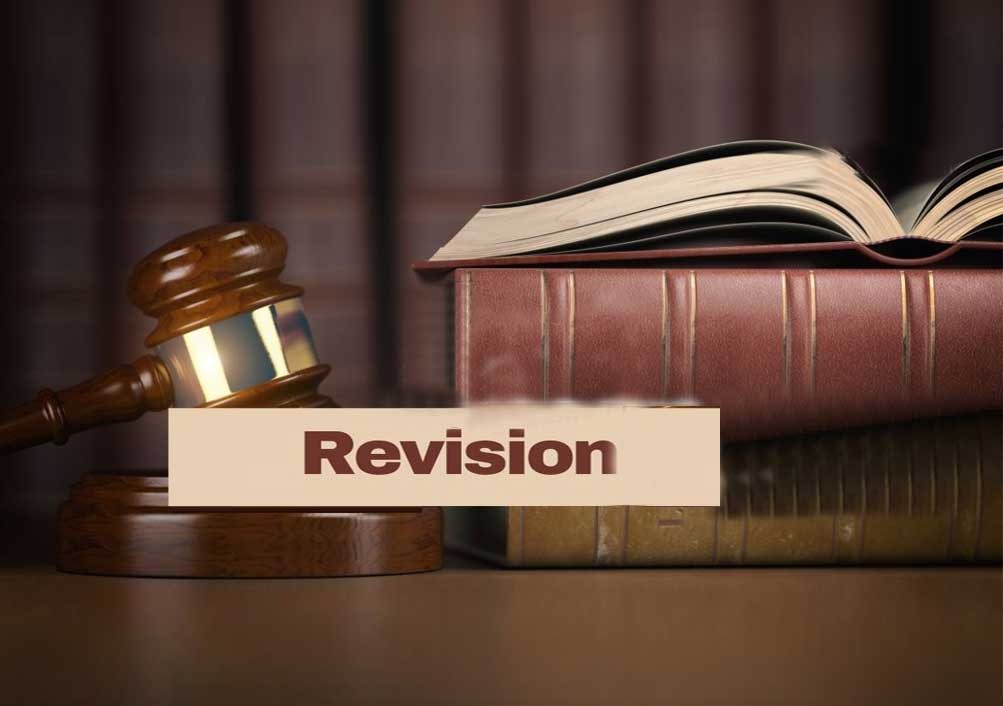In CR-6986-2017(O&M)-PUNJ HC- P&H HC refuses to exercise revisional jurisdiction where application for amendment of plaint was filed at fag end when case was almost mature for decision
Justice H.S. Madaan [13-03-2023]

Read Order: GANESH BEHL AND OTHERS VS SH.ONKAR NATH BEHL
LE Correspondent
Chandigarh, March 14, 2023: Proviso to order 6 Rule 17 CPC clarifies that no application for amendment shall be allowed after the trial has commenced unless the Court comes to the conclusion that in spite of due diligence the party could not have raised the matter before the commencement of trial, the Punjab and Haryana High Court has stated.
Under challenge in this revision petition was the order dated August 30, 2017 passed by the Civil Judge through which an application for amendment of plaint filed by the plaintiffs was dismissed. By dismissing the same, Justice H.S. Madaan held that the revisional jurisdiction of this Court is quite limited and considering the facts and circumstances of the case, there was no reason to interfere with the impugned order by way of exercising the revisional jurisdiction.
Factual matrix of the case was such that the plaintiffs Ganesh Behl and others had brought a suit against defendants Onkar Nath Behl and others, seeking a declaration that they were the owners in possession of the suit land and in addition to that craving for grant of permanent injunction restraining the defendants from interfering in possession of the plaintiffs.
The parties were afforded adequate opportunities to lead evidence in support of their respective claims. Thereafter, the case reached the stage of final arguments. As it came out from the perusal of the interim order, even the arguments had been heard partly when the plaintiffs filed an application seeking amendment of the plaint seeking relief of recovery of possession in the alternative if they were not found in possession of some part of suit property sold by the third defendant to one Ramesh Pal .
Through the impugned order, the application was dismissed.
Feeling aggrieved, the plaintiffs knocked the door of this Court by way of filing the present revision petition.
After considering the submissions, the Court noted that As was observed by the trial Court in the impugned order, the application was filed at the fag end when the case was almost mature for decision inasmuch as the trial Court had heard arguments in part, then all of sudden the application in question was filed.
In furtherance of the same, the Court also noted that proviso to order 6 Rule 17 CPC clarifies that no application for amendment shall be allowed after the trial has commenced unless the Court comes to the conclusion that in spite of due diligence the party could not have raised the matter before the commencement of trial.
In this case the trial was almost complete and there was no reason for plaintiffs to say that in spite of due diligence, they could not have asked for the amendment prayed for before commencement of the trial.
It was not their case that they were dispossessed during the pendency of the suit, rather their whole claim was based upon the fact that they are in possession as owners and defendants should not interfere in their possession.
Once the plaintiffs came up with a prayer seeking possession as an alternative relief then they could certainly not ask for grant of relief or permanent injunction and in that way, it would be doubtful whether a suit for grant of declaration simpliciter was maintainable, the Court stated.
The submission raised by the counsel for the petitioners that if the amendment was allowed the plaintiffs would not lead further evidence and proceedings in the case would not be delayed cannot be accepted as such, because if the amendment of the application was allowed then additional issues may have to be framed and rather the entire nature of the case would be changed, the Court further noted.
The witnesses already examined by the plaintiffs may have to be summoned to face further cross-examination if the defendants so desired and an opportunity afforded to defendants to lead evidence that would amount to a de novo trial, as a result of major change in case of the plaintiff.
Thus, the Court concluded by observing that the impugned order passed by the trial Court was quite detailed and well reasoned and it did not suffer from any illegality or infirmity and is not having any element of arbitrariness or perversity. The revisional jurisdiction of this Court is quite limited and considering the facts and circumstances of the case, there was no reason to interfere with the impugned order by way of exercising the revisional jurisdiction, the Court at the outset observed.
The petition was accordingly dismissed.
Sign up for our weekly newsletter to stay up to date on our product, events featured blog, special offer and all of the exciting things that take place here at Legitquest.




Add a Comment